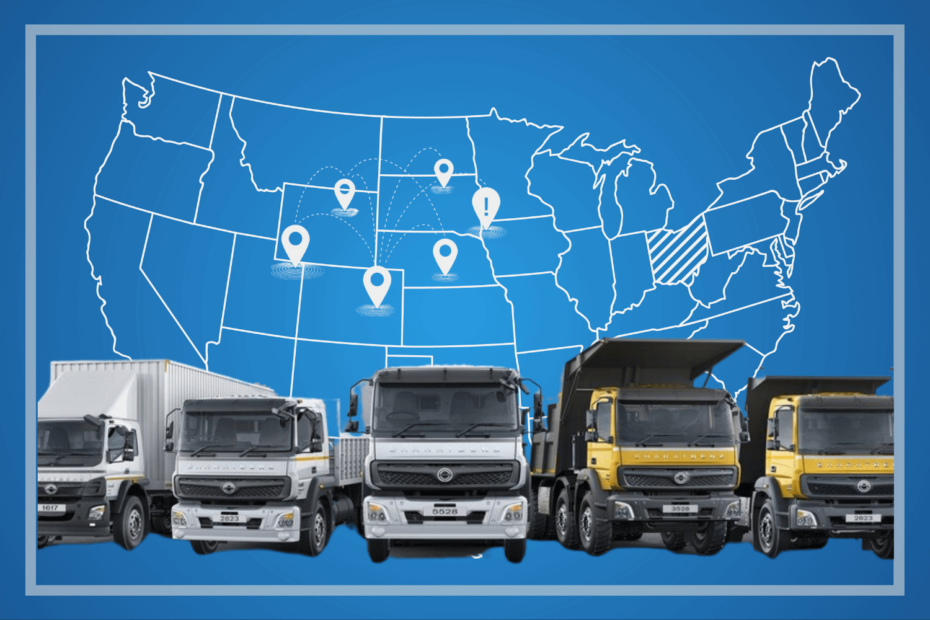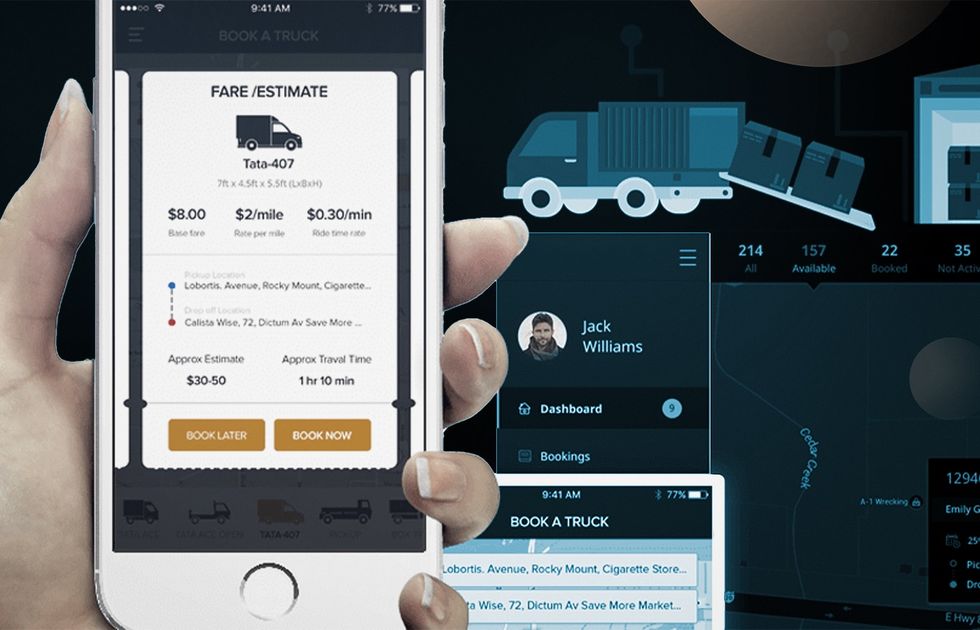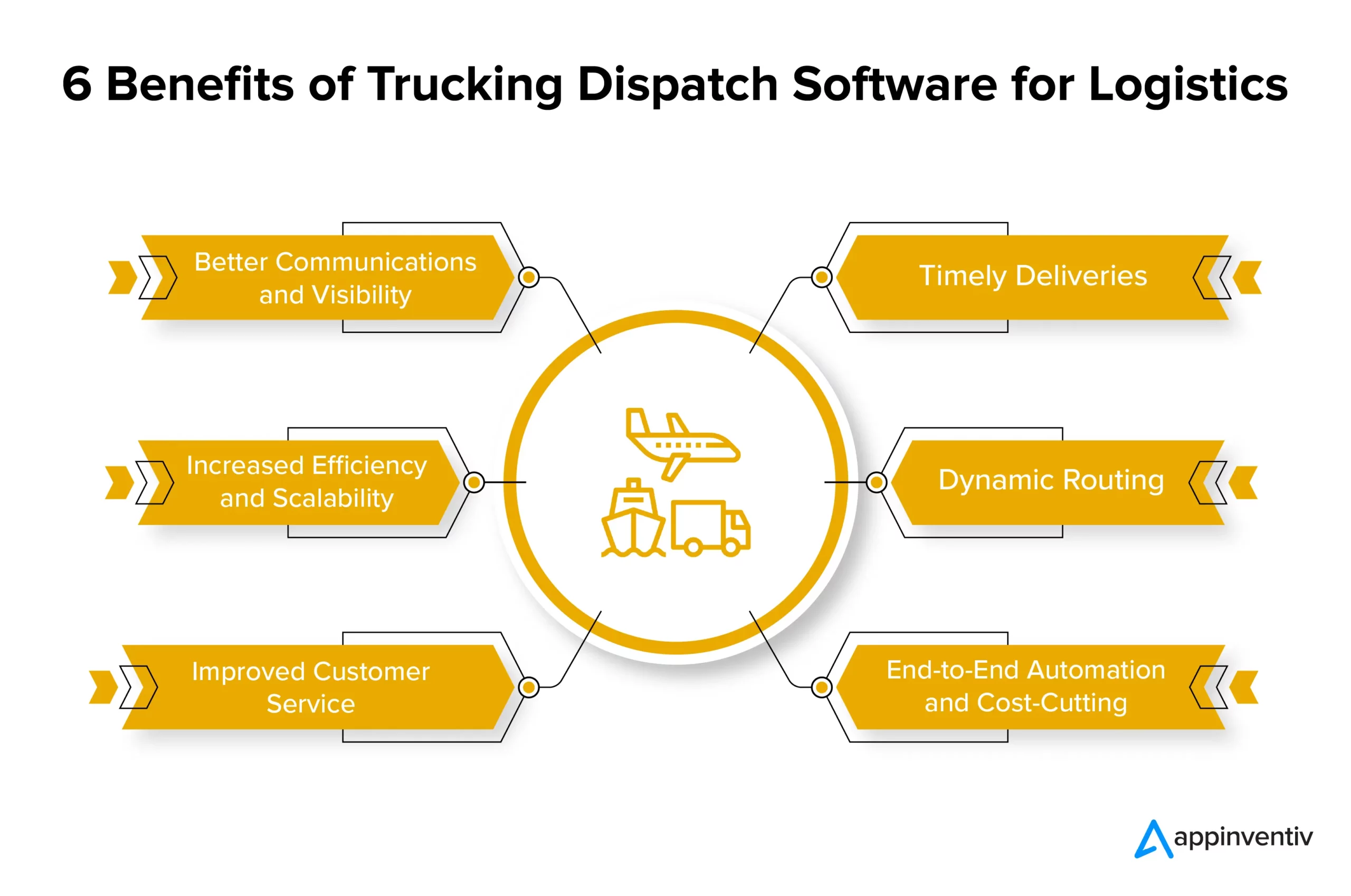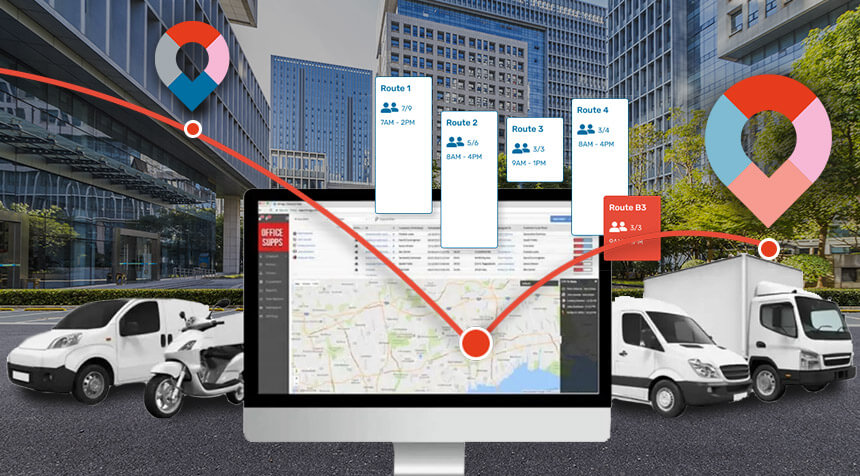To effectively integrate trucking dispatch software with customer relationship management (CRM) systems, prioritize data consistency and real-time synchronization. This ensures accurate information and seamless communication between the dispatch and CRM platforms.
By maintaining good customer relationships through CRM, transportation companies can determine the success of their business, particularly in terms of customer satisfaction and retention. Integrating trucking dispatch software with CRM systems allows for streamlined operations, enhanced data management, and improved customer service.
It enables companies to track customer interactions, manage appointments, and provide personalized services, ultimately leading to increased efficiency and profitability. Successful integration requires careful planning and consideration of the unique needs and workflows of the transportation industry. By following best practices, companies can effectively leverage both systems to optimize their operations and deliver exceptional customer experiences.
Introduction To Crm Integration
To seamlessly integrate trucking dispatch software with CRM systems, it is crucial to prioritize data consistency and real-time synchronization. This ensures data integrity and improves customer service for transportation companies.
Integrating trucking dispatch software with Customer Relationship Management (CRM) systems can significantly streamline operations and enhance customer satisfaction. CRM integration allows logistics companies to consolidate data, gain actionable insights, and optimize their business processes. In this blog post, we will explore the importance of CRM integration in the trucking industry and discuss best practices for seamless integration.
What Is Crm In Trucking?
CRM, or Customer Relationship Management, in the trucking industry refers to the use of technology to acquire, enhance, and retain customer relationships. With CRM software specifically designed for logistics companies, businesses can efficiently manage various tasks ranging from creating profiles on prospects to updating customer lists and scheduling appointments. By actively managing communication with clients, logistics professionals can provide a better service and ultimately improve customer satisfaction.
Why Is Crm Integration Important?
CRM integration is vital for trucking companies due to its numerous benefits and advantages. By integrating trucking dispatch software with CRM systems, businesses can achieve:
- Better knowledge of their customers
- Improved segmentation to target specific customer groups
- Enhanced customer retention rates
- Improved anticipation of customer needs
- Seamless and efficient communication with customers
- Enhanced data privacy protection
Additionally, CRM integration allows logistics companies to consolidate their workflows across warehouse management, transportation, and finance, resulting in a more streamlined and efficient operation overall.
Overall, CRM integration is essential for trucking companies looking to optimize their business processes, improve customer satisfaction, and gain a competitive edge in the industry. In the following sections, we will explore the best practices for integrating trucking dispatch software with CRM systems.

Credit: www.predictiveanalyticstoday.com
Benefits Of Crm Integration
When it comes to integrating trucking dispatch software with customer relationship management (CRM) systems, there are several benefits that businesses can enjoy. By seamlessly connecting these two systems, companies can experience improved data consistency, real-time synchronization, enhanced customer service, and increased efficiency. Let’s explore these benefits in more detail:
Improved Data Consistency
Integrating trucking dispatch software with CRM systems ensures that data remains consistent across both platforms. This means that information such as customer details, orders, and delivery schedules are automatically updated in real-time. With consistent and accurate data, businesses can make informed decisions and provide reliable service to their customers.
Real-time Synchronization
With CRM integration, data synchronization happens in real-time. This means that any changes or updates made in the trucking dispatch software are instantly reflected in the CRM system, and vice versa. This eliminates the need for manual data entry and reduces the risk of errors or discrepancies. Real-time synchronization ensures that all stakeholders have access to the most up-to-date information, enabling better coordination and decision-making.
Enhanced Customer Service
CRM integration allows businesses to provide exceptional customer service. By having a complete view of customer information, including previous interactions and preferences, companies can personalize their communication and tailor their services to meet individual customer needs. This leads to improved customer satisfaction, loyalty, and ultimately, increased revenue.
Increased Efficiency
Integrating trucking dispatch software with CRM systems streamlines operations and increases overall efficiency. Manual tasks, such as duplicate data entry or toggling between different platforms, are eliminated, saving time and reducing the likelihood of errors. The automation of processes also improves workflow efficiency, allowing employees to focus on more strategic tasks. With increased efficiency, businesses can handle more orders, reduce costs, and maximize productivity.
In conclusion, integrating trucking dispatch software with CRM systems brings numerous benefits to transportation companies. Improved data consistency, real-time synchronization, enhanced customer service, and increased efficiency are just some of the advantages that businesses can expect to gain. By leveraging the power of CRM integration, companies can streamline operations, enhance customer satisfaction, and drive overall business success.
Integration Requirements Of Crm Tool
When integrating trucking dispatch software with customer relationship management (CRM) systems, there are several key requirements to consider. These requirements ensure seamless integration and enhance the overall efficiency and effectiveness of your CRM system. Let’s take a closer look at each of these integration requirements:
Marketing Crm Integrations
One important integration requirement for your CRM tool is the ability to integrate with your marketing efforts. This includes outbound email campaigns, social media, and marketing automation. By integrating your marketing efforts with your CRM system, you can:
- Better knowledge of your customers
- Better segmentation
- Better customer retention
- Better anticipation of needs
- Better and speedier communication
- Better protection of data privacy
Social Media Integrations
In today’s digital age, social media plays a crucial role in marketing and customer engagement. Therefore, it is important to integrate your CRM system with social media platforms. By doing so, you can:
- Monitor and engage with customers on social media
- Gather valuable customer insights from social media interactions
- Manage social media campaigns and content calendars
Marketing Automation Integrations
Marketing automation tools can significantly enhance your CRM system’s capabilities. By integrating your CRM tool with marketing automation software, you can:
- Automate repetitive marketing tasks
- Personalize marketing campaigns based on customer data
- Track and analyze marketing campaign performance
Data Privacy Considerations
When integrating your trucking dispatch software with a CRM system, it is crucial to prioritize data privacy and security. This includes:
- Ensuring compliance with data protection regulations
- Implementing robust data encryption and access controls
- Regularly monitoring and auditing data access and usage
By considering and meeting these integration requirements, you can optimize the performance of your CRM system and streamline your trucking dispatch operations, ultimately enhancing customer satisfaction and driving business growth.
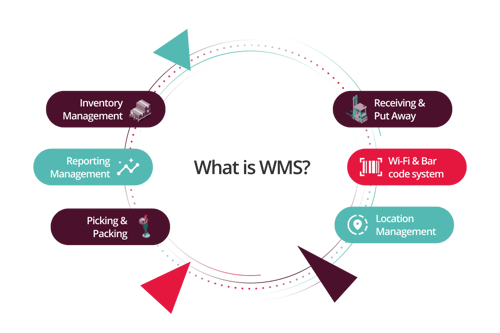
Credit: www.mintsoft.com
Best Practices For Integrating Trucking Dispatch Software
To seamlessly integrate trucking dispatch software with customer relationship management (CRM) systems, it is crucial to prioritize data consistency and real-time synchronization. This ensures data integrity and improves customer service by allowing for better communication and anticipation of needs.
Prioritize Data Consistency
When integrating trucking dispatch software with Customer Relationship Management (CRM) systems, prioritizing data consistency is crucial. Consistent data is essential for smooth operations, accurate reporting, and effective decision-making. Inconsistent or duplicate data can lead to confusion, delays, and errors in customer service, dispatching, and billing processes.
To ensure data consistency, it is recommended to:
- Maintain standardized data formats and naming conventions across the trucking dispatch software and CRM systems.
- Regularly perform data audits and clean-ups to identify and resolve any inconsistencies or duplicates.
- Implement automated data syncing processes to minimize manual data entry and reduce the risk of errors.
Ensure Real-time Synchronization
In a dynamic trucking industry, real-time synchronization between the trucking dispatch software and CRM systems is crucial for efficient operations and timely decision-making. Real-time synchronization allows the dispatchers and customer service representatives to have access to the most up-to-date information on orders, deliveries, and customer interactions.
To ensure real-time synchronization, consider the following:
- Choose trucking dispatch software and CRM systems that offer seamless integration capabilities and real-time data sharing.
- Implement automatic data synchronization processes that update information in both systems simultaneously, ensuring accurate and consistent data across the board.
- Regularly monitor and test the integration to identify any issues or delays in data synchronization and promptly address them.
Utilize Crm Functionalities For Customer Service Improvement
Integrating trucking dispatch software with CRM systems provides an opportunity to leverage the CRM functionalities for improved customer service. By utilizing CRM functionalities, logistics companies can better understand their customers, personalize interactions, and enhance overall customer satisfaction.
Some CRM functionalities that can be utilized include:
- Creating customer profiles and tracking their preferences, order history, and communication preferences.
- Implementing automated email and SMS notifications for order status updates.
- Utilizing customer segmentation and targeting features to tailor marketing and sales campaigns.
- Using customer feedback and surveys to gather insights and continuously improve services.
Integrate With Other Relevant Systems
Integrating trucking dispatch software with other relevant systems, such as accounting software, fleet management systems, or route optimization tools, can further streamline operations and improve efficiency. Integrating these systems allows for seamless data flow and eliminates the need for manual data entry or data duplication.
When integrating with other systems, consider the following:
- Assess the compatibility and integration capabilities of the trucking dispatch software and the other systems you wish to integrate.
- Ensure that data flows smoothly between systems, eliminating any potential bottlenecks or data inconsistencies.
- Regularly monitor and update the integrations to ensure continued compatibility and performance.
Case Studies And Success Stories
Integrating trucking dispatch software with customer relationship management (CRM) systems requires prioritizing data consistency and real-time synchronization. This ensures data integrity and improves customer service for transportation companies.
Experiences From Logistics Companies
Logistics companies have been actively integrating trucking dispatch software with customer relationship management (CRM) systems, and their experiences have been both impressive and inspiring. These case studies and success stories offer valuable insights into the benefits and best practices of such integrations. One logistics company, for example, successfully integrated their trucking dispatch software with their CRM system to streamline their operations and enhance their customer service. By consolidating their data and sharing actionable insights, they were able to deliver a better service to their customers. With a centralized CRM system, all departments, including warehouse, transport, and finance, were able to work cohesively, resulting in improved efficiency and customer satisfaction. Another logistics company leveraged CRM integration to optimize their marketing campaigns. By seamlessly connecting their outbound email campaigns and social media strategies with their CRM platform, they achieved better knowledge of their customers, improved segmentation, and higher customer retention rates. The integration allowed them to anticipate customer needs and communicate with them more effectively, ultimately boosting their marketing efforts.Examples Of Successful Crm Integration
Below are a few examples that highlight the success of CRM integration for logistics companies: 1. Company A: By integrating their trucking dispatch software with their CRM system, Company A saw a significant reduction in manual data entry, eliminating errors and improving data accuracy. This integration also enabled them to analyze customer buying patterns, anticipate customer needs, and provide personalized services, resulting in increased customer satisfaction and loyalty. 2. Company B: After integrating their CRM system with their trucking dispatch software, Company B experienced a streamlined workflow and improved communication with their customers. They were able to automate important processes such as scheduling appointments, tracking shipments, and sending notifications to customers, resulting in faster response times and enhanced overall customer experience. 3. Company C: With the integration of their CRM system and trucking dispatch software, Company C achieved better collaboration between their sales and operations teams. The alignment of data and seamless communication allowed for more accurate sales forecasting, optimized route planning, and improved resource allocation, ultimately maximizing efficiency and profitability. These examples showcase the power of integrating trucking dispatch software with CRM systems for logistics companies. By leveraging the benefits of CRM integration, these companies were able to drive growth, improve customer satisfaction, and gain a competitive edge in the industry. In conclusion, case studies and success stories from logistics companies demonstrate the positive impact of integrating trucking dispatch software with CRM systems. With streamlined operations, improved marketing campaigns, and enhanced customer service, such integration can significantly benefit logistics companies in their quest for success.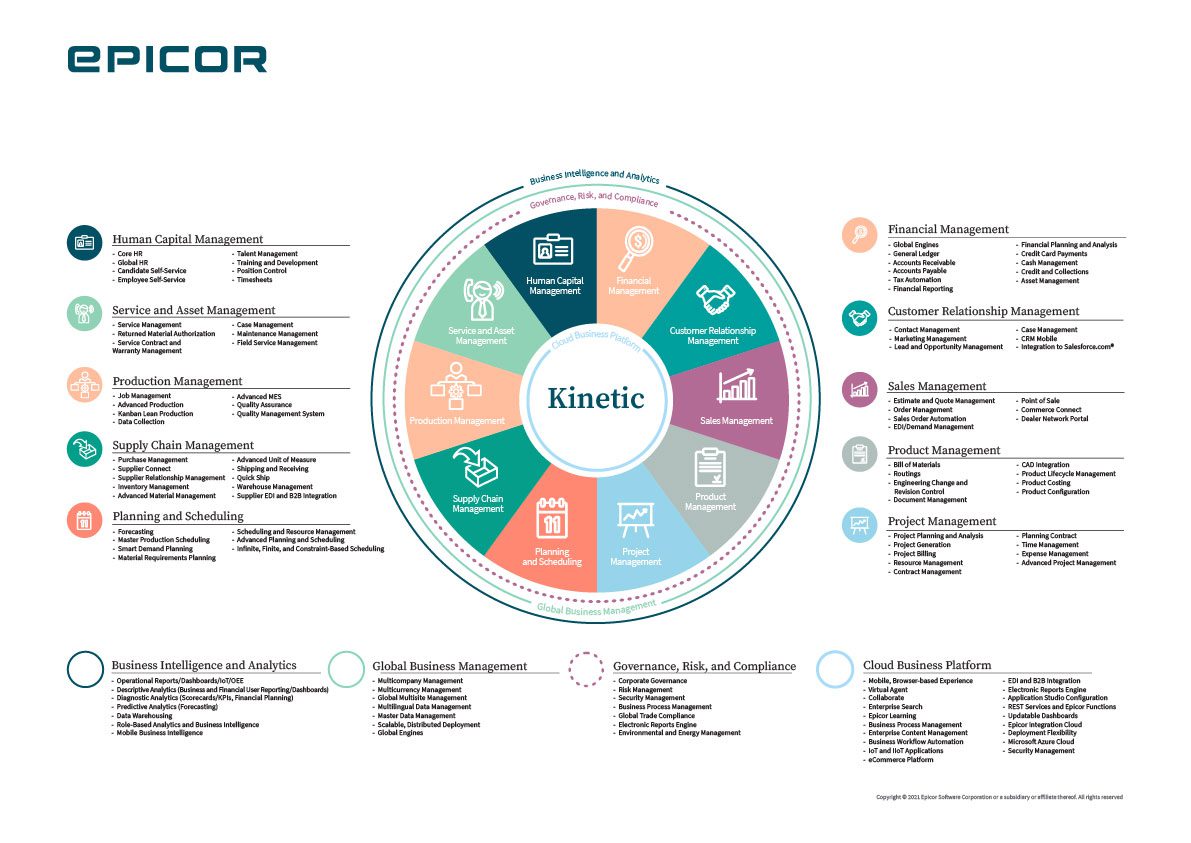
Credit: encompass-inc.com
Frequently Asked Questions Of Best Practices For Integrating Trucking Dispatch Software With Customer Relationship Management (crm) Systems
What Is Crm Strategy For Logistics Company?
CRM strategy for logistics companies is the use of technology to acquire, enhance, and retain customer relationships. It helps with activities like creating profiles on prospects, updating customer lists, scheduling appointments, and managing communication with clients. CRM in logistics empowers businesses by structuring data and sharing actionable insights to improve operations and deliver better services to customers.
What Is Crm In Trucking?
CRM in trucking refers to the use of customer relationship management technology to enhance business operations by organizing data and sharing insights. It helps streamline workflows across warehouse, transport, and finance functions, ultimately delivering better services to customers.
What Are The Integration Requirements Of A Crm Tool?
Integrating a CRM tool requires data consistency, real-time synchronization, and the ability to enhance customer relationships. It also enables better segmentation, retention, anticipation of needs, communication, and data privacy protection. Prioritizing these requirements ensures effective integration with trucking dispatch software.
What Are The 7 Ways Crm Improves Customer Relationships?
CRM improves customer relationships by providing better knowledge of customers, segmentation, retention, anticipation of needs, speedier communication, and data privacy protection. It ensures data integrity, improves customer service, and maintains good customer relationships in the logistics industry.
Conclusion
In the fast-paced world of trucking dispatch, integrating software with Customer Relationship Management (CRM) systems is crucial for success. By prioritizing data consistency and real-time synchronization, companies can ensure data integrity, improve customer service, and maintain good customer relationships. CRM systems empower logistics companies to acquire, enhance, and retain customer relationships through technology.
With better knowledge of customers, segmentation, retention, anticipation of needs, communication, and data privacy, companies can deliver a better service to their customers. Integrating trucking dispatch software with CRM systems is a best practice that can drive efficiency and success in the industry.
- How to Diagnose Bad Strut Mounts: Expert Tips for Quick Fixes - May 16, 2024
- How to Bypass Blower Motor Relay: 7 Expert Techniques - May 16, 2024
- How to Easily Check Ecu Ground: Essential Steps for Optimal Performance - May 16, 2024
